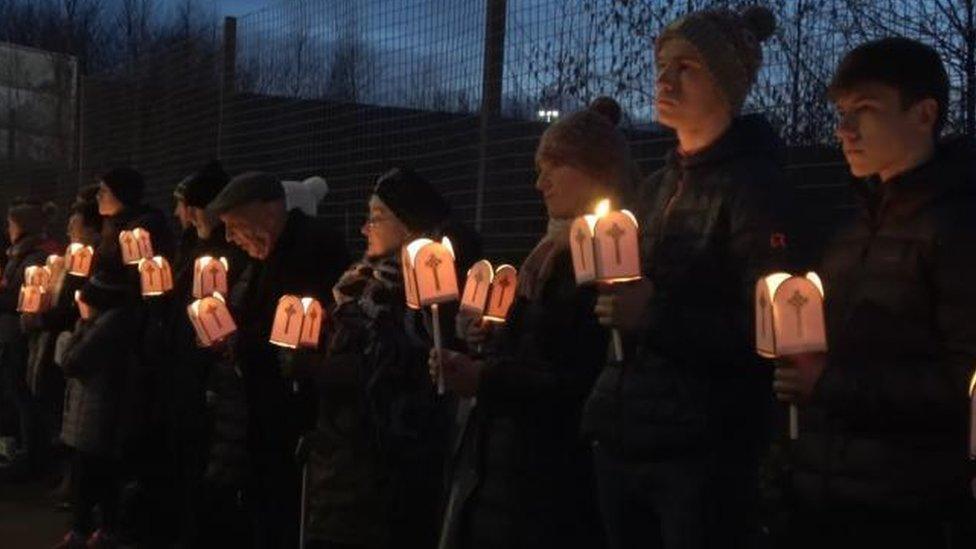Councillors back 'buffer-zones' after anti-abortion vigils
- Published

Pro-life protestors outside a hospital
Councillors have backed a motion for "buffer-zones" following anti-abortion prayer vigils outside facilities during Lent.
Elaine McSporran claimed women, visitors and NHS workers felt traumatised by the candle-lit displays.
But the policy idea has been condemned by the Catholic Church and pro-life organisations.
They claim it is an attack on freedom of expression and people's views on abortion.
During a full council meeting, Ms McSporran said: "Everyone has the right to confidential healthcare and to attend their workplace without fear, distress and intimidation."
'Peaceful' vigils
The motion asks Glasgow's Integrated Joint Board to explore how the anti-protest zones could be implemented.
A Green amendment to the agreed motion ensured this would be done in 2018.
But a Labour amendment noted the council did not have the powers to carry it out.
Ms McSporran added: "I will again highlight the importance of supporting everyone and the right to speak and protest about these matters they feel very passionate about.
"I would emphasise this motion is not for or against that right.
"This is to provide a buffer-zone around these premises to allow individuals entering to feel safe and without prejudice."
'Respectful individuals'
Labour councillor Aileen McKenzie called the vigils "peaceful" but was in favour of banning them.
She said: "As a regular visitor to the Queen Elizabeth University Hospital, I am aware of one particular group that participate in a prayer vigil.
"Normally these are peaceful and respectful individuals exercising their rights to protest and, although I am not aware of any incidents, it doesn't mean that they won't progress to be so."
John Deighan, Scottish chief executive of the Society for the Protection of Unborn Children, said the zones would be difficult to introduce and that they struck "against the principles we hold dear in our democracy".
He said: "We allow all sorts of other protests such as those against Trident, or organised by trade unions."
The council will now investigate how the buffer-zones could be implemented and will report back to the relevant committee before the end of the year.
Story by local democracy reporter Alan Ferguson